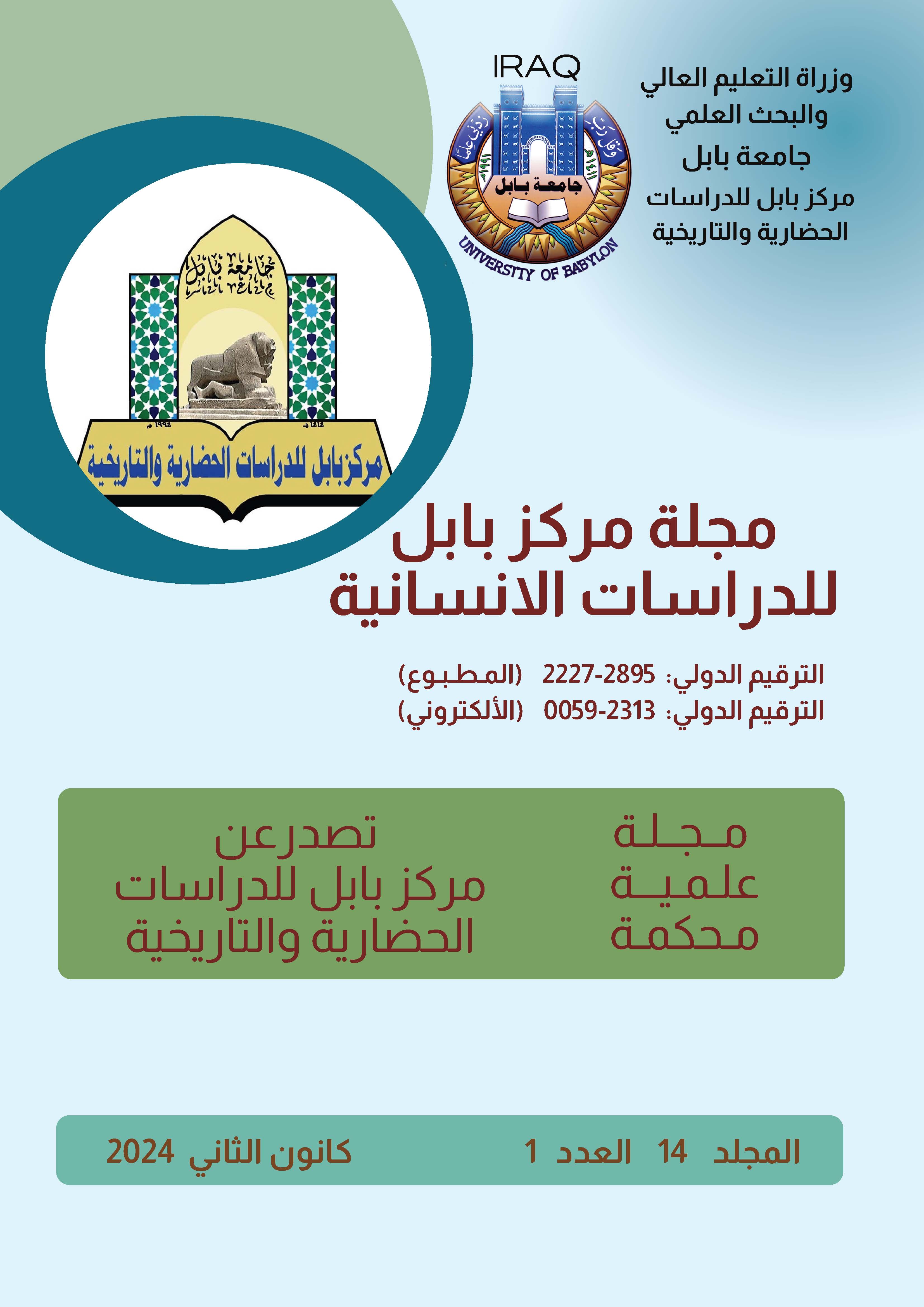الاقتباس القرآني عند الشعراء العميان في الأدب الأندلسي
الكلمات المفتاحية:
الاقتباس , من القرآن , للشعراء العميان , النصي’ الاشاريالملخص
يحاول الباحث هنا ان يتناول ظاهرة الاقتباس القرآني في شعر الشعراء العميان في الأدب الأندلسي , فمن بين دواوين الشعراء العميان ديوان يحيى بن هذيل القرطبي , ابو الحسن الحصري القيرواني , الاعمى التطيلي , ابن جابر الأندلسي الضرير و غيرهم من الشعراء العميان في الأندلس ، اذ تدرك و يستنتج هذه الظاهرة في اشعارهم , ومدى تأثرهم و تعلقهم و ارتباطهم بألفاظ القرآن الكريم التي استدعوها في اشعارهم لأثراء نصوصهم الشعرية لتزينها جمالاً و معنى , لذا فإن هذا البحث جاء للوقوف على انماط مختلفة من الاقتباس , حيث يأتي هذا الوقوف على عدة محاور اتخذها الشاعر وسيلة تعبر عما يدور في نفسه , و ينقسم الاقتباس الى : الاقتباس النصي , الاقتباس الإشاري , الاقتباس التحويري , والاقتباس الإحالي .
كما توصل الباحث الى مدى تأثرهم بهذا الارث العظيم ( القرآن الكريم ) , الذي يعد الركيزة الاساسية لاقامة العلاقات التناصية ، كما انه يعد مصدراً مهما من مصادرالالهام الادبي لدى الشعراء ، لذا تمثل النصوص الدينية المرجع الأكثر قدسية بين المراجع الأخرى ، لأن المورورث الديني يعد رافداً من روافد الاديب الذي يرافقه في الرحلة الطويلة في مجال الابداع ، و إن الشاعر يعزز ذاكرته بدلالات و معانٍ مبتكرة من الموروث الديني ، و ذلك بما ضمنه القران الكريم من خصوبة و عطاء و ما يحويه من قصص و افكار وعِبر، و لفصاحته و اسلوبه المعجز كيف لا وهو كلام الله جل في علاه ، لذلك باتت معانيه تمثل ارثراً للشاعر العربي فضلا عن الجودة الأدبية و الفنية التي تميز بها الخطاب الديني و القرآني .







